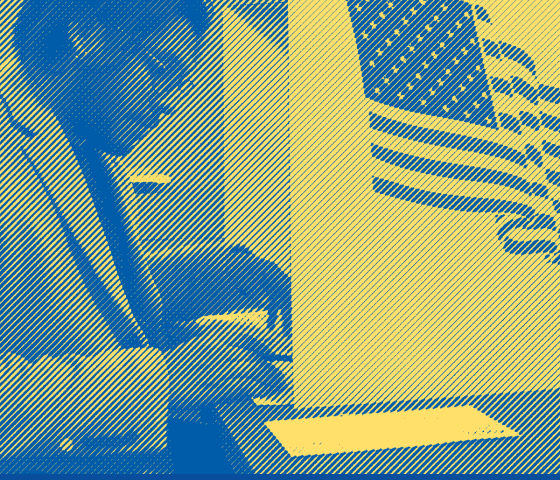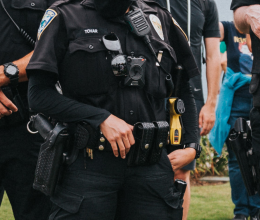Body cameras used by law enforcement officials, on the streets, and with the general public, can be a win-win. However, body cameras in Iowa schools is quite another matter.
Des Moines and other school districts already equip their school resource officers (police officers posted in the schools) with body cameras. Now Burlington school administrators have announced that they will start wearing body cameras during interactions with parents and students.
Many schools already have cameras in hallways, stairwells, and lunchrooms. Many school buses also have surveillance cameras.
Where does the surveillance end? To put a twist on the famous U.S. Supreme Court ruling in the landmark black armband free speech case, a student does not check all rights to privacy at the schoolhouse gate.
Schools Are Different
Body cameras in schools are especially problematic. They allow school staff to invade student privacy at an increasingly intimate level — different than the overall monitoring of more open spaces. Body cameras present a real threat to students’ privacy and contribute to an environment in our schools of pervasive, intrusive surveillance.
Imagine the effect on an already shy student speaking up with a dissenting view in a political science class. Or teachers videotaping in locker rooms and restrooms — certainly places where more than a few scuffles or arguments can break out. We also have concerns about a principal recording students who come into his office. How is a student supposed to confide about the true nature of the problem with a camera trained steadily on him? There are also concerns about how long the footage is retained and who has access to it.
It’s a problem that school administrators may have the discretion to turn the cameras off and on. Turn them on when the administrator wants to capture a student’s or parent’s behavior. Turn them off when the administrator or staffer is behaving in a way he or she doesn’t want to be recorded. Comments from the Burlington principal and others indicate that their interest in body cameras may be more about protecting administrators than they are about protecting our far more vulnerable students.
Special Considerations for Minors
It’s a problem to allow mass recording of minors. The law has long recognized that minors do not have the same abilities as adults to protect themselves from invasions of privacy. Adults have the mental maturity to comprehend the implications of being recorded and adjust their behavior accordingly. Minors often do not have that same insight or control. What’s more, what these students do as children may have little bearing on who they become in later life (one reason many juvenile court records are sealed). That means body cameras have no place in schools. Even when body cameras are used by law enforcement in the wider world, good laws and good policies dictate that minors should not be recorded.
It’s a problem that body cameras in schools likely will end up being another tool in the school-to-prison pipeline. Already, there are too many ways for students to wrongly be fed into the juvenile justice system. And students of color are disproportionately being kicked out of school, charged, and arrested at a rate far higher than that of white students.
It’s worth noting that our state does recognize some privacy rights of students. The Iowa legislature recently declined to advance a bill, with language couched as anti-bullying, that would have put schools in the position of monitoring students 24/7 on social media, even outside of school hours, when no school activities or equipment was involved.
Body cameras in schools are yet another invasion of privacy for students. Iowa legislators, administrators, school boards, and parents should do everything in their power to prevent their further implementation.

